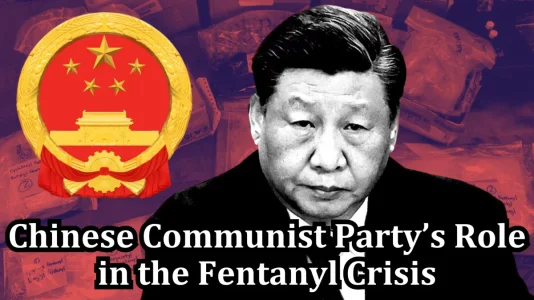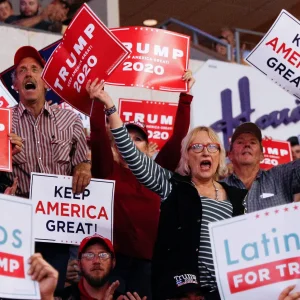SHENZHEN, China — Chinese vendor Yin Xinwei sometimes makes close to $1,400 a day selling low-priced pill boxes, barbecue spits and other items to U.S. online consumers.
The future of that business, and the bargain prices enjoyed by his American customers, is now in question amid a looming U.S. regulatory change aimed largely at two Chinese e-commerce platforms he sells on, Temu and Shein.
The change, which comes amid rising trade tensions between the world’s two largest economies, is likely to have major consequences for already burdened Chinese sellers such as Yin who rely heavily on overseas markets.
“The business model could disappear,” he said in a recent interview at his office in the southern Chinese city of Shenzhen.
Both platforms have experienced explosive growth in recent years thanks to a customs exemption that allows packages whose contents are worth less than $800 to enter the United States almost tax-free and with minimal scrutiny.
Each year hundreds of millions of packages, mostly from Chinese platforms, are sent directly to American consumers eager to take advantage of rock-bottom prices on clothing, electronics and other products.
But this month, the
White House said it planned to narrow the loophole, known as the “de minimis” exclusion, to prevent abuse and strengthen protections for American consumers and workers. That could mean painful times ahead for the Chinese sellers that supply the platforms — and higher prices for American consumers.
Chinese state media has criticized the proposal as protectionist and say it will hurt American consumers.
“Without the exemption, the costs will be higher,” Yin said. “Products might have to be priced for Temu closer to Amazon.”
Use of the de minimis exemption has skyrocketed since the threshold was increased to $800 in 2015, said David Townsend, a partner at the U.S.-based law firm Dorsey & Whitney and an expert in international trade.
“The exemption was designed to avoid imposition of certain tariffs on low-value imports of retail goods, and to reduce the administrative burdens on retailers and consumers of retail products imported into the United States,” he said in an email.
That loophole has been a boon for Shein, a retailer known for fast fashion that was founded in China in 2012 but is now based in
Singapore, and Temu, which was founded in Boston in 2022 but is owned by Chinese global commerce group PDD Holdings. The success of the two Chinese platforms has put pressure on American companies such as
Amazon, which has considered
launching a new discount section on its site in order to better compete with them.
According to the White House, more than a billion packages entered the U.S. under the de minimis provision last year, compared with 140 million 10 years ago.
U.S. Customs and Border Protection data show that from 2018 to 2021, between about 60% and 80% of de minimis shipments came from China and
Hong Kong.
The increased use of the exemption has become yet another flashpoint in relations between the U.S. and China, the world’s two biggest economies.
“In particular, the de minimis exemption allows lawful avoidance of certain U.S. tariffs and duties, including the China-specific tariffs imposed under Section 301 by President Trump (and maintained by President Biden),” Townsend said.
It also presents challenges for U.S. customs officials trying to prevent the import of counterfeit merchandise, goods that fail to meet health and safety requirements, goods
made with forced labor or illicit synthetic drugs such as fentanyl.
The White House proposal could be disruptive for Chinese suppliers that already face sagging demand at home as the
Chinese economy struggles to recover from three years of pandemic isolation. Companies such as Temu and Shein serve as a lifeline for many Chinese factories in the face of what U.S. officials say are
severe overcapacity issues in some Chinese industries.
Yin used to sell to Chinese consumers but has given up his domestic business to focus entirely on the overseas market. He estimated that about 40% of his Temu orders went to the U.S., 40% to Europe and the other 20% elsewhere.
He said Temu had opened the door to overseas e-commerce for him and a “huge number” of other Chinese sellers by taking care of everything once their items arrive at a company warehouse in China.
“In the old days, if someone wanted to sell to other countries, the barrier to entry was high,” Yin said. “They must understand English, have knowledge about logistics, know how to connect with overseas storage companies.”
The sheer number of sellers on the Chinese platforms has created fierce competition, Yin said, “which has resulted in the lowest prices.”
Fellow seller Jacky Lu, whose party decorations and other goods are sold on Amazon, Temu and Shein, said that while the calculation varies for each item, “very generally speaking, the price on Temu might be 70% of that on Amazon.”
With Amazon, “I also need to pay for logistics, advertising, operations and storage,” he said, which affects how he sets his prices.
Both Temu and Shein say their growth doesn’t depend on the U.S. exclusion.
“We are reviewing the new rule proposals and remain committed to delivering value to consumers,” a Temu spokesperson said in an email.
Shein said in a statement that its success was “anchored in our unique on-demand business model,” adding that it looked forward to working with all stakeholders on trade reforms “to create a level, transparent playing field — where the rules are applied evenly and equally.”
With the de minimis exemption at risk, Yin said, the platforms appear to be “gradually retreating from handling the logistics” and pushing Chinese sellers to do more of that on their own.
Yin said he had already started shipping his products in bulk to U.S. warehouses and distributing them from there.
“Right now, it’s the only way the platforms can make it,” he said.
Eunice Yoon reported from Shenzhen, China, and Jennifer Jett reported from Hong Kong.
Chinese vendors selling cheap goods on Teimu and Shein to U.S. online consumers could be hit by White House plans to close the "de minimis" customs exemption.

www.yahoo.com



 www.census.gov
www.census.gov

nypost.com






